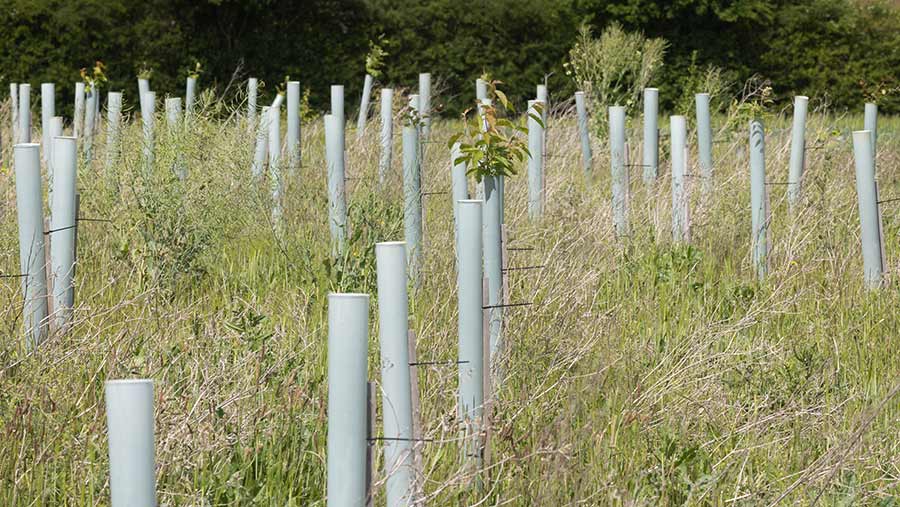Opinion: SFI puts farmers in better negotiating position
 © Tim Scrivener
© Tim Scrivener It’s a standard principle of negotiation that to get the best deal, you have to be prepared to walk away. Yet farmers have been fixated on producing food regardless of market conditions.
A new grassroots campaign to achieve fair prices for farmers has just kicked off, asking the government to intervene.
The irony is that with the launch of the new Sustainable Farming Incentive (SFI) in England, it may have already done so.
See also: Opinion – AI will focus on farm management, not tasks
It is clear that SFI will be the new benchmark for rents.
We sub-let a small amount of land for energy maize, and it was suggested by the prospective licensee that to “top up” the rent offered for 2024 we enter SFI insecticide-free and overwinter cover options.
I countered that if we were going to enter SFI, I would simply put the whole field into the most profitable option, which would be IPM2 flower-rich grass at £673/ha. The rent offer increased as a result.
While this is great for us, it shows that SFI will be direct competition to anyone who wants to rent land to grow anything productive.
Compared with Countryside Stewardship, SFI offers flexibility, with three-year agreements and more annual variability.
There is no limit to the amount of a farm that can be entered into field-scale options, and SFI is not restricted to active farmers (although it is available only to BPS claimants at the outset).
This means farmers will be able to drop field-scale options like IPM2 into rotations to replace the worst-performing break crops, or to take whole farms out of production.
The upside is, of course, a better negotiating position for farmers.
Faced with unfair contract terms, uncertain pricing or unequal risk burdens, farmers now have a genuine option to say “no, thank you” and earn decent money for producing scruffy-looking grass.
Processors will be naive to expect the same volume of commodities coming to the market in 2024, and retailers may be naive to expect that farmers will still choose to produce for them at all.
From the farmer’s perspective, SFI might just trigger the revolution in contractual relationships we so desperately need.
The threat to food security is real. Farmers have no moral obligation to keep producing food or to keep it cheap, and we now have a government-sponsored environmental scheme that enables us to walk away.
No doubt the Treasury will be happy that taxpayers’ money is being spent on environmental goods and that the pollution cost of agriculture decreases, even if increases elsewhere.
Supply chains that want domestic provenance will need to work out how to incentivise farmers to produce for them, which will require better and fairer contracts.
This isn’t just about price, though: supply chains also need to acknowledge the increased production risk farmers face in working capital, biosecurity and climate variability.
Some are already innovating in offering advanced payments to guarantee the crop is planted, for example.
Defra does need to be concerned about the potential impacts of SFI on the availability of land to rent.
It is expecting rents to fall as the link between the BPS subsidy and land occupation is broken, but average FBT rents at £285/ha don’t stand a chance against the SFI benchmark. This is a problem.

